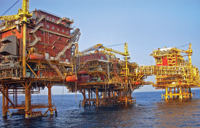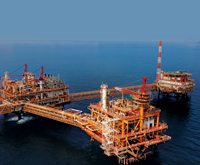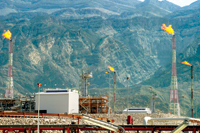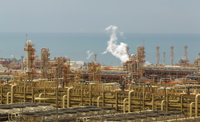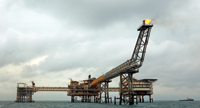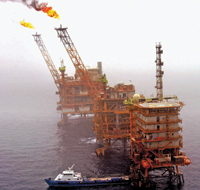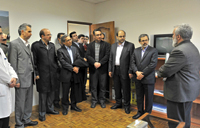
IRAN is preparing a modified oil contract formula to attract foreign investment into its energy sector to improve on the terms of its so-called buyback contracts, deemed unattractive to oil companies even before the latest international sanctions came into effect last year.
Managing director of the National Iranian Oil Company Ahmad Ghalehbani was quoted as saying in local media reports that the buyback contracts would be replaced with a type of production-sharing contract.
The Opec state introduced the buyback contract model several years ago as a way of circumventing a constitutional ban on production-sharing contracts. Under the buyback formula, investors are repaid from the proceeds of a finished project at a previously agreed rate of return.
But the fixed rate of return and the length of the original contracts, which have been tweaked over the years, did not provide enough incentive for international oil companies who typically prefer to have equity shares and longer involvement in upstream projects.
The third and fourth generations of the conventional buyback formula as well as what officials have called “semi-production sharing agreements” are new initiatives, officials say.
NIOC’s director for legal affairs Mahmoud Reza Firouzmand says his department was still working on the new contract, particularly on the issue of guarantees for production targets that contractors would be committed to reach and maintain over a specified period of time.
“What we have in mind is to have a tailor-made basket of all types of contracts to enable us to enter into negotiations on the development of fields and have diverse options,” Firouzmand says.
Ghalehbani says that the new generation contract had not yet been implemented and the current buyback model would apply to any future projects until the new contract was ratified.
“These contracts have been put in the new law but the regulations are not ready yet,” he says, adding that the legal department of his company was working on it.
“The semi-production sharing agreements will be used for the shared fields exclusively,” says Ghalehbani, who is deputy oil minister for oil affairs.
There are reports suggesting that the production-sharing contracts had been discussed with Indian companies, among the few foreign operators still active in Iran.
In mid-March, Iran’s oil ministry said it had been given the green light to introduce new, attractive terms to close deals with foreign companies. The move followed a meeting between Iran’s Foreign Minister Ali Akbar Salehi and Russian Energy Minister Alexander Novak.
Novak at the time referred to the need to change Iranian regulations to allow foreign company ownership in oil and gas field projects, which the Iranian constitution does not allow.
Nearly all Western oil companies left the country several years ago, partly because of the unattractive terms of the buyback contracts and partly because of unilateral US sanctions in place at the time that set limits on the amount of investment that could be made in Iran’s energy sector.
Sanctions against Iran over its controversial nuclear programme have been tightened since 2010, culminating last year in the imposition by the EU of a ban on Iranian oil imports from July 1 alongside US sanctions that resulted in lower oil imports by Asian consumers from Iran.
Chinese state-owned oil companies are the only foreign operators with any significant projects in Iran though they appear to have made little progress in bringing on any significant new capacity in either the upstream or the downstream sectors.
Iran’s crude oil production and exports have slumped since EU sanctions came into effect with current production at around 2.7 million barrels per day down by around 1 mbpd over the 2011 average.
Iranian oil output had been in decline before then because of the age and nature of its producing oil fields and officials have said that developing shared oil fields would be a priority in order to add capacity. Iran has shared fields with Iraq, Kuwait, Saudi Arabia, Oman and Qatar.
Qatar is home the North Field that is an extension of Iran’s giant offshore South Pars gas field and Tehran has been concerned that rapid development of the North Field by Qatar might lead to depletion of South Pars gas reservoirs adjacent to the Qatari field.



















































































